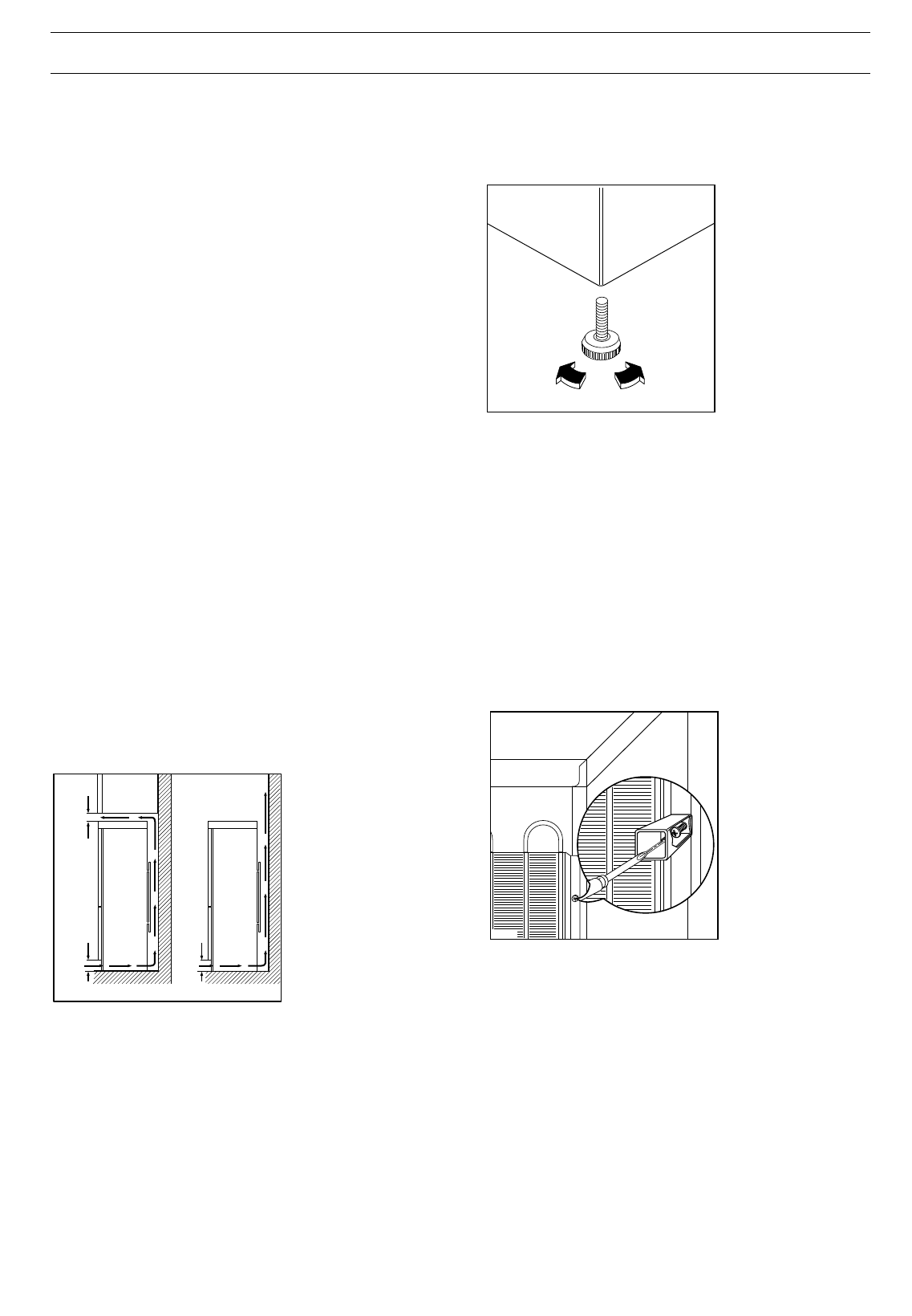
5
INSTALLATION
Warning
IF YOU ARE DISCARDING AN OLD
APPLIANCE THAT HAS A LOCK OR CATCH
ON THE DOOR, YOU MUST ENSURE THAT IT
IS MADE UNUSABLE TO PREVENT YOUNG
CHILDREN BEING TRAPPED INSIDE.
Depending upon the position which you choose for
your appliance, you may wish to reverse the way in
which the door opens. To do this, refer to
instructions on “Door reversal directions”
paragraph.
Positioning
This appliance is designed to operate in ambient
temperatures between 10
°
C (50
°
F) and 32
°
C (90
°
F).
It should be located in a dry atmosphere, out of
direct sunlight and away from extreme
temperature e.g. not next to a cooker or other
sources of direct heat, or in a very cold room e.g. an
outhouse, where the temperatures may fall below
10
°
C (50
°
F). If these temperatures are exceeded i.e.
colder or warmer, then the appliance may not
operate correctly.
You should also ensure that air can circulate freely
around the back and the top of the cabinet. There
must also be at least 100 mm (4”) distance between
the top of the cabinet and any overhanging kitchen
furniture (Fig. 1-A). Ideally, the appliance should
not be positioned beneath overhanging furniture
(Fig. 1-B).
Fig. 1
There should also be a gap of 25 mm either side of
the appliance. Do not obstruct the space
underneath. The back of the cabinet may be placed
close to the wall but must not touch it. DO NOT
install in places with restricted ventilation.
NP002
100 mm 10 mm
10 mm
A
B
Adjust the level of the appliance by screwing out
the adjustable foot, or feet, at the bottom of the
cabinet using your fingers or a spanner (see Fig. 2).
Fig. 2
Before using
Remove all securing tapes. Wash inside the
appliance with lukewarm water and bicarbonate of
soda (5 ml to 0.5 litre of water). Do not use soap or
detergent as the smell may linger. Dry thoroughly.
Rear spacers
In the bag with the documentation, there are two spacers
which must be fitted as shown in the figure.
Slacken the screws and insert the spacer under the
screw head, then re-tighten the screws.
Fig. 2a
D200
PR153


















